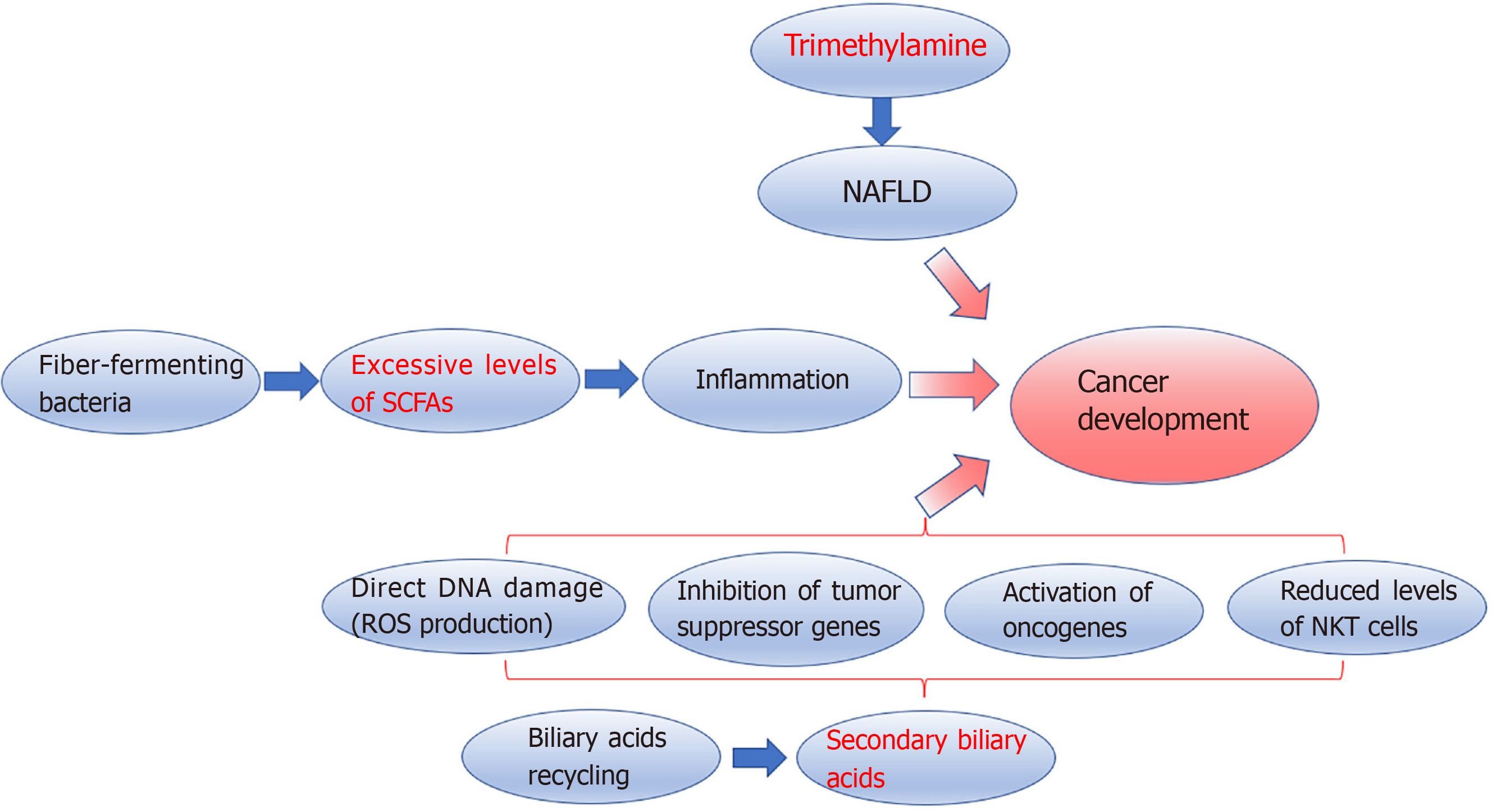Copyright
©The Author(s) 2021.
World J Gastrointest Oncol. Nov 15, 2021; 13(11): 1616-1631
Published online Nov 15, 2021. doi: 10.4251/wjgo.v13.i11.1616
Published online Nov 15, 2021. doi: 10.4251/wjgo.v13.i11.1616
Figure 2 Microbiota metabolites causal role in liver cancer development.
Gut microbiota metabolises choline into several metabolites, including trimethylamine (TMA) that the liver metabolises into TMA oxide, and TMA oxide is related to liver inflammation. Excessive intake of soluble dietary fibre is associated with excessive proliferation of fibre-fermenting bacteria, including Clostridium that produces short-chain fatty acids. Excessive levels of short-chain fatty acids, particularly butyrate, promote inflammation. The intestinal microbiota has a fundamental role in bile acid (BA) production and recycling. BAs are synthesised by the liver and metabolised by gut bacteria into secondary BAs, which are sensed by the farnesoid X-activated receptor of the epithelial cells. Farnesoid X-activated receptor provides feedback to the liver. Secondary BAs can cause direct DNA damage by producing reactive oxygen species, inhibiting tumour suppressor genes, activating oncogenes, and negatively affecting natural killer T cell infiltration. Natural killer T cells can control both primary and secondary cancer development. NAFLD: Non-alcoholic fatty liver disease; SCFAs: Short-chain fatty acids; NKT cell: natural killer T cell; ROS: Reactive oxygen species.
- Citation: Bartolini I, Risaliti M, Tucci R, Muiesan P, Ringressi MN, Taddei A, Amedei A. Gut microbiota and immune system in liver cancer: Promising therapeutic implication from development to treatment. World J Gastrointest Oncol 2021; 13(11): 1616-1631
- URL: https://www.wjgnet.com/1948-5204/full/v13/i11/1616.htm
- DOI: https://dx.doi.org/10.4251/wjgo.v13.i11.1616









